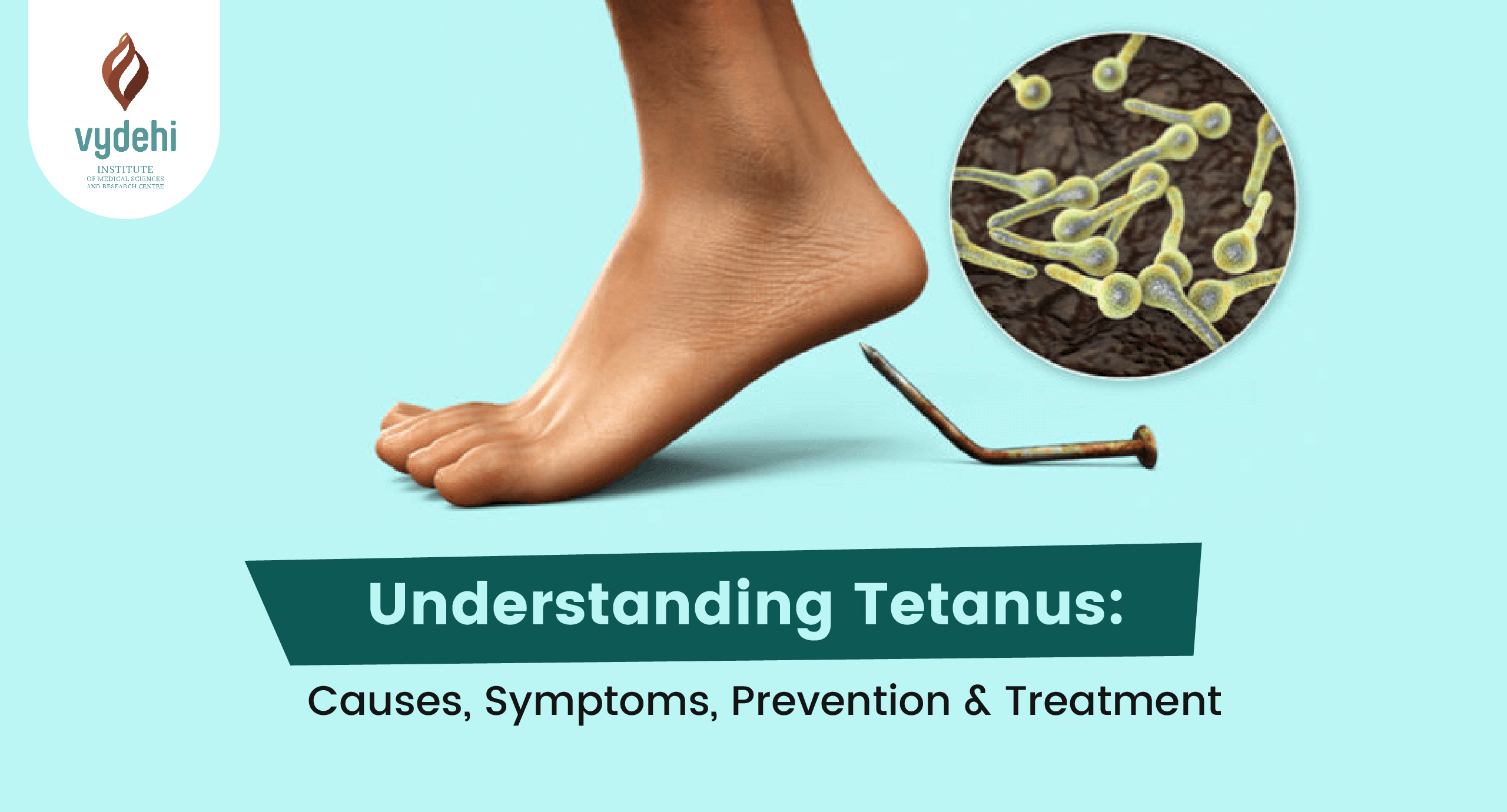

Tetanus, often referred to as “lockjaw,” is a serious but preventable disease caused by the Clostridium tetani bacteria. This bacterium is commonly found in soil, dust, and manure. When it enters the body through cuts, wounds, or punctures, it produces toxins that affect the nervous system, leading to painful muscle stiffness and spasms.
At Vydehi Hospital, Bangalore, we emphasize the importance of tetanus prevention through timely vaccination and treatment. With proper awareness and care, tetanus can be prevented and managed effectively.
Tetanus is caused when the tetanus bacteria enter the body, usually through:
Unlike many infectious diseases, tetanus does not spread from person to person. It develops only when the bacteria enter the body through an open wound.
The signs of tetanus may appear within 3 to 21 days after infection. Some common tetanus symptoms include:
If left untreated, tetanus can lead to severe complications affecting breathing and the nervous system.
Unlike some infections, tetanus cannot be completely cured once symptoms develop. However, it can be managed and treated with timely medical care. Early vaccination and wound management are the best prevention strategies.
At Vydehi Hospital, Bangalore, our emergency and infectious disease specialists provide prompt care for patients with tetanus. Tetanus treatment may include:
If you have a deep or contaminated wound, seeking medical care immediately is crucial.
The tetanus vaccine is the most effective way to prevent tetanus. In India, common tetanus vaccine names include:
If you’re searching for a “tetanus injection near me” or “tetanus injection in Bangalore”, Vydehi Hospital provides round-the-clock emergency care and vaccination services.
Prevention is always safer than treatment—vaccination is the key.
Tetanus is a preventable disease, and vaccination remains the best defense. If you sustain a wound or have missed your booster dose, don’t delay—visit Vydehi Hospital for expert care and tetanus injections in Bangalore.
Your safety and health are our priority. Stay protected, stay healthy.

 Emergency Number
Emergency Number